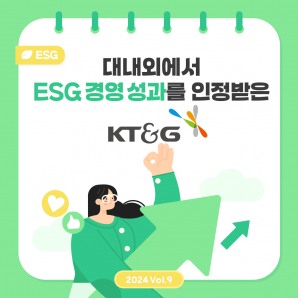
▲Stellar Blade, a new game for the ShiftUp console released earlier this year (Photo: SHIFT UP)
According to the Korea Exchange, 'SHIFT UP' closed at 71,000 won, up 18.33% from its initial public offering price of 60,000 won. 'SHIFT UP' soared 49.17% to KRW89,500 shortly after the listing, but later gave back some of the gains. Trading volume and value were 17.01 million shares and 1.342 trillion won, respectively.
Previously, 'SHIFT UP' has been successful in demand forecasting for institutional investors and public share offerings for retail investors.
The demand forecast, which took place from June 3rd to 27th, attracted 2,164 institutions, resulting in a 225.94 to 1 competition ratio. All institutions that participated in the demand forecast (including those that did not submit a price) submitted prices at or above the upper end of the desired offering price band (47,000 to 60,000 won), finalizing the final offering price at the upper end of 60,000 won.
The initial public offering, which was held on the 2nd and 3rd of this month, attracted a 341.24 to 1 competition ratio and attracted a margin of 18.55 trillion won. This is more than two to three times higher than the typical subscription margin raised by a large game company listed on the KOSPI.
Founded in 2013, 'SHIFT UP' is a global game developer with a wide range of IP. It is said to have secured a favorable revenue structure through favorable publishing (game distribution) contracts and has the potential to secure favorable contract terms for its next game.
'SHIFT UP' plans to use the total proceeds of KRW 435 billion from the IPO to expand its IP and strengthen its game development infrastructure. 'Goddess of Victory: Nikke" and "Stellar Blade," as well as strengthening existing IPs such as "Project Witches," will be utilized as resources for development.
"'SHIFT UP' has secured a favorable revenue distribution structure with its IP power and proven development capabilities, which has the potential to achieve more favorable revenue distribution conditions for its future game pipeline," said Kim Dong-woo, a researcher at Kyobo Securities. "As of last year, the labor-to-sales ratio was 81%, and the publishing partner bears most of the variable costs such as marketing expenses and platform fees, so it has a structure that can maximize sales leverage effects depending on the success of the game."
Jeon HanSin (pocha@fntimes.com)





























![[DQN] "지자체 금고 잡아라"…출연금 신한 1위·금고 규모 농협 압도적](https://cfnimage.commutil.kr/phpwas/restmb_setimgmake.php?pp=006&w=69&h=45&m=5&simg=2024112102061902156f09e13944d391241172.jpg&nmt=18)
![[DQN] ‘잠잠할 날 없는 금융사고?’ 3년간 6천억대...BNK금융, 사고금액 최대](https://cfnimage.commutil.kr/phpwas/restmb_setimgmake.php?pp=006&w=69&h=45&m=5&simg=2024112211120005687237391cf861151384944.jpg&nmt=18)
![[DCM] KT, 2000억 회사채 발행... 장기 자금조달로 재무 안정성 확보](https://cfnimage.commutil.kr/phpwas/restmb_setimgmake.php?pp=006&w=69&h=45&m=5&simg=2024112113555900183141825007d12411124362.jpg&nmt=18)




![[DCM] "한화오션, 공모채 경쟁률 8.4대 1… 효성첨단소재도 목표액 초과"](https://cfnimage.commutil.kr/phpwas/restmb_setimgmake.php?pp=006&w=69&h=45&m=5&simg=2024112210235807058141825007d12411124362.jpg&nmt=18)















![[카드뉴스] 국립생태원과 함께 환경보호 활동 강화하는 KT&G](https://cfnimage.commutil.kr/phpwas/restmb_setimgmake.php?pp=006&w=298&h=298&m=1&simg=202403221529138957c1c16452b0175114235199_0.png&nmt=18)
![[카드뉴스] 신생아 특례 대출 조건, 한도, 금리, 신청방법 등 총정리...연 1%대, 최대 5억](https://cfnimage.commutil.kr/phpwas/restmb_setimgmake.php?pp=006&w=298&h=298&m=1&simg=20240131105228940de68fcbb35175114235199_0.jpg&nmt=18)
![[카드뉴스] 어닝시즌은 ‘실적발표기간’으로](https://cfnimage.commutil.kr/phpwas/restmb_setimgmake.php?pp=006&w=298&h=298&m=1&simg=202311301105084674de68fcbb35175114235199_0.png&nmt=18)
![[신간] 사모펀드 투자와 경영의 비밀](https://cfnimage.commutil.kr/phpwas/restmb_setimgmake.php?pp=006&w=81&h=123&m=5&simg=2024102809331308730f8caa4a5ce175114235199.jpg&nmt=18)
![[신간]퍼스널브랜딩, 문학에서 길을 찾다](https://cfnimage.commutil.kr/phpwas/restmb_setimgmake.php?pp=006&w=81&h=123&m=5&simg=2024102214123606876f8caa4a5ce175114235199.jpg&nmt=18)
![[서평] 추세 매매의 대가들...추세추종 투자전략의 대가 14인 인터뷰](https://cfnimage.commutil.kr/phpwas/restmb_setimgmake.php?pp=006&w=81&h=123&m=5&simg=2023102410444004986c1c16452b0175114235199.jpg&nmt=18)

![[신간] 김국주 전 제주은행장, ‘나는 시간을 그린다 1·2’ 에세이 출간](https://cfnimage.commutil.kr/phpwas/restmb_setimgmake.php?pp=006&w=81&h=123&m=5&simg=2024111517430908074c1c16452b012411124362.jpg&nmt=18)








